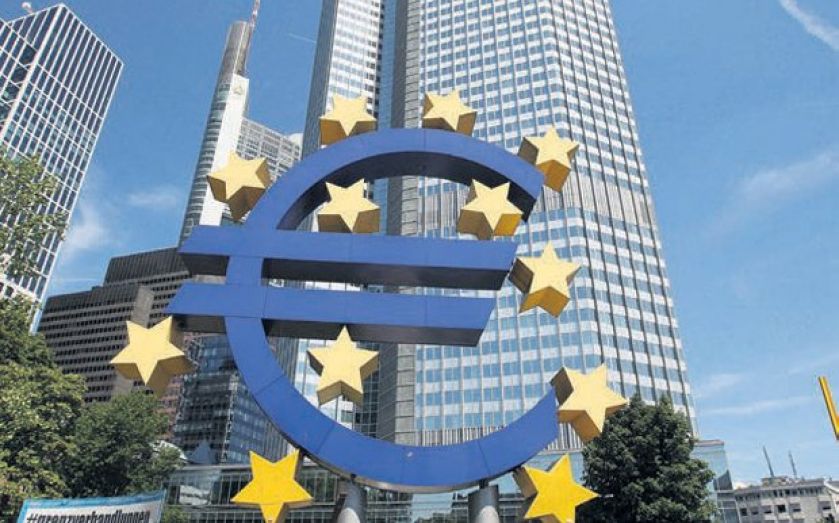Eurozone: ECB said to have discussed €500bn quantitative easing programme

European Central Bank (ECB) officials are said to have discussed a €500bn quantitative easing programme, which many hope will rescue the embattled Eurozone from its economic quagmire.
If the programme is launched, it will involve the central bank buying up government debt rated BBB- or higher. Purchasing only investment-grade debt minimises the bank's exposure to potential defaults.
The ECB's governing council was shown various quantitative easing options at a meeting on 7 January. Bloomberg News cited a euro-area bank official who said no further steps were taken.
Commentators have argued the Eurozone needs quantitative easing to avert prolonged deflation. This is where depressed demand drives down prices, company earnings and eventually wages and hiring.
Earlier this week it was revealed the embattled region had slipped into deflation in the final month of 2014. Analysts fear it risks slipping into a deflationary spiral which would depress demand, crunch companies' earning potential and curtail wage growth and hiring.
Frankfurt is widely expected to agree on a quantitative easing programme when the governing council meeting on 22 January. It's hoped the policy will inject cash into the Eurozone, giving lending a much-needed boost and ultimately driving growth.
The ECB's current arsenal includes other unconventional measures, such as loans to banks and buying up private debt securities.